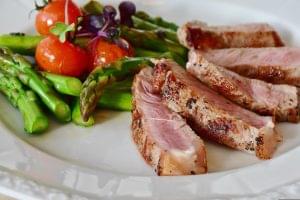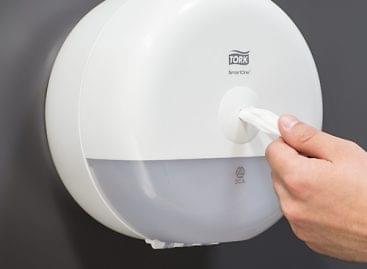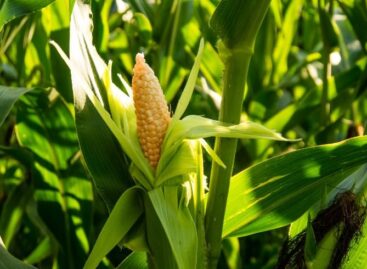The first two-Michelin-star restaurant in Hungary and Startup Plastic Surgery are launching a joint challenge for environmentally friendly catering
The challenge of the incubation program is for young teams who could help with an innovative idea to replace vacuum packaging in an environmentally friendly way.

(Photo: Pixabay)
In November 2022, Startup Plastic Surgery will launch its incubation program for the third time, in which the inventors of the best ideas will receive professional and significant financial support so that dreams can become reality and profitable projects/products can be created. This year’s program is looking for sustainable ideas and startups to solve the environmental and health challenges caused by plastic. What adds to the challenge is that the ONYX Műhely restaurant also joined the program. This is not at all surprising, since the Workshop and the future ONYX both approach hospitality from a completely new perspective and aim to keep sustainability in mind in every possible aspect of its operation. One of the focus areas of its sustainability strategy covers the topic of waste management. In today’s world of gastronomy, suviding as a procedure is almost essential, however, the use of many plastic bags, for which we are waiting for bold and innovative ideas to replace, recycle or use them in other ways.
The vacuum packaging industry will show stable growth for years to come
Similar to the start of plastic production, vacuum packaging was discovered and used more widely from the middle of the 20th century. It is now unthinkable without it to store and preserve cooked, prepared or frozen food in portions in the food and hospitality industry. In addition, the growing use of vacuum or modified atmosphere packaging (MAP) also includes the packaging of pharmaceuticals, electronics, household products and automotive components.
Vacuum packaging is a business worth more than 25 billion dollars (of which the food industry can claim 52%, 12.9 billion dollars), which is forecast to grow by 4-4.5% per year for at least another 5 years. This is mainly due to years of stable growth in the packaging industry and the meat industry. Meat production increases by tens of millions of tons every year, as the demand for processed, pre-packaged meat dishes and foodstuffs, which can be stored, transported and preserved cost-effectively, safely and permanently in vacuum packaging, is increasing. The USA is responsible for 28% of industry production, but the fast-growing Pacific and Asian markets are not far behind.
Why is vacuum packaging so popular?
In our globalized world, customers increasingly demand fresh, good-tasting, appetizing and high-quality food at all times of the year. This can be achieved most effectively with MAP packaging, as this technology:
It can increase the warranty period of food by 5-6 times,
enables hygienic storage, which can reduce the rate of food poisoning (600 million people are affected by this every year),
airtight storage protects the food from drying out, bacteria and fungi that initiate decay,
due to the longer warranty period, the use of preservatives can be omitted or reduced,
can be used in many ways: suitable types of vacuum bags can also be used during preparation, cooking and freezing processes,
cost-effective method, with a low packaging price,
enables space-saving storage per portion (the latter can reduce food waste by an estimated 70%),
also suitable for transport (plastic packaging adds minimal weight, saves space and keeps the food fresh).
Based on the above, it can be said that there is an interesting and challenging path to replacing the current vacuum packaging, as many of the mentioned aspects must be met in order to make this product more sustainable, although it would be easy to implement with some compromises.
Sustainable vacuum bags and other alternatives
There are already alternative solutions for food storage and preservation, which offer many more possibilities.
Bioplastics can be one of the ways to make vacuum packaging sustainable. For a few years now, bio-based plastics that are biodegradable and can be recycled have been in the public eye and are commercially available. These are produced in larger numbers every year, and as an eco-conscious step, more and more food and catering industry market players are using them. We currently produce 2.44 million tons of bioplastics per year, which is less than 1% of plastic production, 60% of which is used as packaging material. The collection and industrial distribution of used bioplastic packaging materials still has a lot of potential.
Bioplastic is a renewable or biodegradable polymer that can be composted at home or industrially, and is biocompatible (i.e. not harmful if it enters the human body). Their production involves much less carbon dioxide emissions, and due to their recyclability into the system, much less waste production.
One of the most popular biopolymers is polylactic acid (PLA), which is produced from natural lactic acid. It is mainly used in the packaging industry and agriculture. PLA is a widely used, thermoplastic, biodegradable polyester that can be produced from renewable sources such as corn, cellulose, sugar beet, potato sugar cane molasses or palm fiber. During its production, significantly (73%) less fossil fuel is used, so a significant amount of energy can be saved compared to its traditional petrochemical-based counterparts. There are several (but still very few) environmentally friendly, biodegradable, PLA (based) vacuum packaging bags available on the international market, which are completely identical in functionality to synthetic bags.
Why don’t we use these instead of traditional plastic bags?
Primarily because of our price, which – although it is decreasing due to increasing demand and production capacity – can still be 2-4 times that of synthetic vacuum bags, so for the time being it can be more of an additional solution for the food industry and restaurants for food storage than a full-fledged alternative .
Another reason is that the recycling infrastructure is not built. A large part of bioplastics can only be composted industrially, so they require organized collection and industrial treatment, for which there is no properly developed infrastructure in most countries. The sorting of household waste is not careful enough, non-compostable plastics are also included in the compostable organic fraction, which naturally impairs recyclability. Due to high costs and strict regulations, there is not enough food waste composting equipment either. In addition, it is also typical that there is no adequate relationship between the packaging designers and the composters, so that they can coordinate their work and build a closed-chain organic material recycling system.
The production of compostable vacuum bags is mainly carried out by small and medium-sized enterprises, whose production capacity cannot meet the needs of the food industry and hospitality packaging material. That is why more competitive solutions, the development of the infrastructure for industrial composting and the improvement of production technologies are needed so that the PLA bag can be a better value for money and scalable real alternative to traditional vacuum packaging in more and more industries.
What other options are there for using used synthetic vacuum bags?
Another solution could be an “upcycling” idea, i.e. reusing vacuum bags for some new product, even for a series of works of art or for an object that can be used in a restaurant. Does the term upcycling mean that a material treated as waste is turned into something with added value? On the one hand, because they are more expensive than their petrochemical, synthetic counterparts. The pocket watch; with more than just the raw material itself. A good example of this is making a sweater out of a PET bottle, or making a bag out of leather scraps.
Do you also have an idea for rethinking plastics?
Then don’t hesitate, you can still apply for the Startup Plastic Surgery program until October 10!
What you can get in return:
business coaching
professional support
direct market access
networking events
PLUS!
Investment opportunity with a 4-month development period during which we shape the initial phase startup ideas into marketable and economically viable businesses!
PLUS! PLUS!
Onyx awards a special prize to the most promising food storage and preservation solution and invites it to work together. In doing so, the costs of joint work are covered as a non-refundable grant, for which Onyx does not request a share of the company’s ownership.
Related news
Tork at SIRHA Budapest: hygiene, efficiency and sustainability for the HoReCa sector
🎧 Hallgasd a cikket: Lejátszás Szünet Folytatás Leállítás Nyelv: Auto…
Read more >Bonduelle achieves B Corp™ certification worldwide
🎧 Hallgasd a cikket: Lejátszás Szünet Folytatás Leállítás Nyelv: Auto…
Read more >Related news
Festival buzz at the 60th anniversary EuroShop trade fair
🎧 Hallgasd a cikket: Lejátszás Szünet Folytatás Leállítás Nyelv: Auto…
Read more >A stable compass in the Hungarian FMCG sector for 20 years
🎧 Hallgasd a cikket: Lejátszás Szünet Folytatás Leállítás Nyelv: Auto…
Read more >







